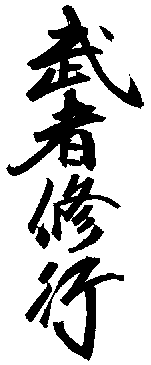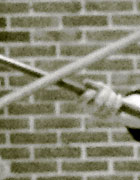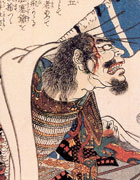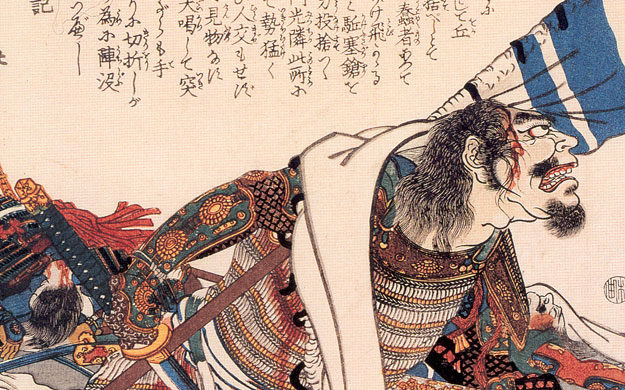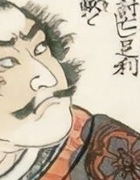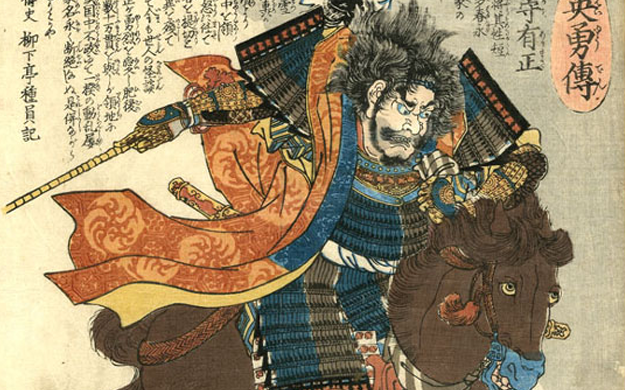
It was common in Japan for those who wanted to become masters of sword fighting to travel throughout the country from dojo to dojo. This was called musha-shūgyō: warrior training.
The act of traveling and the hardships encountered along the way were an
essential part of this training, which is why musha-shūgyō is sometimes
translated as ‘austere training in swordsmanship’. Austerity or asceticism was
a way to attain the mental attitude of a warrior and be able to face, and
solve, anything that came one’s way. This is asceticism in the original Greek
meaning of the word (άσκησις): the training of the athlete and the discipline
it entails.
Instructions for the warrior-in-training
In the Edo period the Japanese obsession with laying everything down in rules
led to a number of instructions to regulate the life of the musha-shūgyōsa –
those who trained to become warriors. The Bukyo Shigen lists them as follows,
as translated by William Scott Wilson in his ‘The Lone Samurai: The Life of
Miyamoto Musashi’ (Tokyo: Kodansha International, 2004), pp. 245-247:
Required austerities
-
Bear up under days of cold and heat, withstand exposure to wind and rain,
and walk mountain roads and difficult paths. - Do not sleep under a roof; consider it fundamental to sleep out in the open.
- Be patient with hunger and cold. Carry no money or food provisions.
-
If there is a battle at one’s destination, participate and achieve
meritorious deeds. Be direct in combat; avoid acting like a thief. -
Go alone to places frightening to the common run of men: places where evil
spirits congregrate or where there are bewitching foxes and poisonous
snakes. -
Become a criminal on purpose, be put in jail and extricate yourself by your
own wisdom. -
Consider your position to be lower than that of farmers and make your living
by helping in the paddies and fields.
Permitted possessions
-
Clothing: a padded cotton garment, underwear, an undersash, a bleached
cotton shirt, a three-foot-long hand towel, a dyed headband, a cord (for
drying things as necessary) - Fire-making material: flint and steel, tinder, small kindling.
-
Eating utensils: a straw wrapper (for rice or other leftovers), a bamboo
canteen. -
Miscellaneous: a travel pass, paper, a portable brush-and-ink set, medicine,
scissors, straw sandals, hempen cord, wattled hat.
Stephen Snelders



